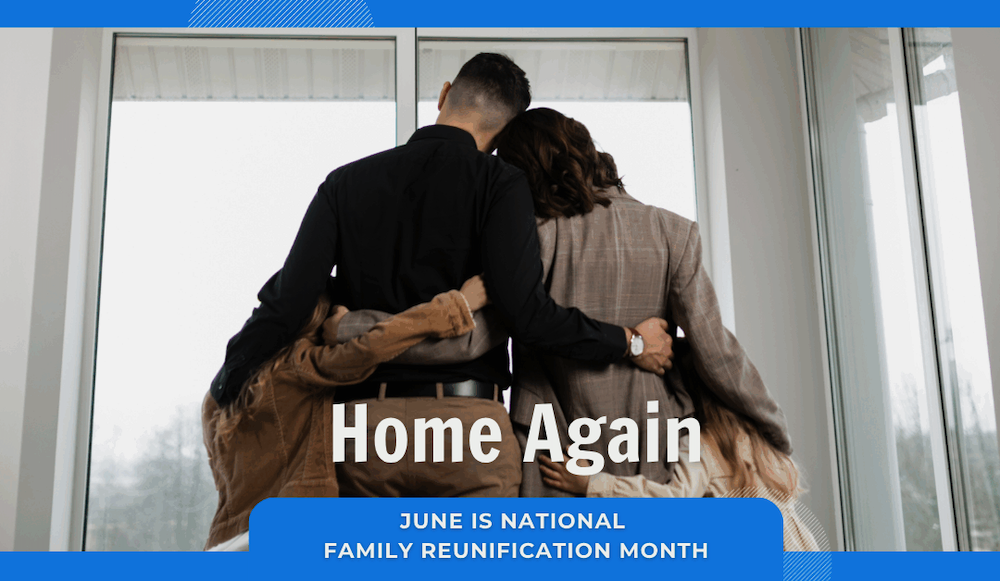Every June, National Family Reunification Month honors the resilience of families and the professionals who support them. But beyond awareness and advocacy, it’s the real stories, full of heartbreak, hope, and healing, that remind us why this work matters.
A recent story—a journey nearly 200 days long—happily ended where it began: with two children back home, and parents who never gave up.
In December, two young girls were removed from their home and their mother and father. The youngest child had suffered an unexplained injury, which prompted child welfare officials to intervene. The children were temporarily placed in foster care while the case was assessed. Denise Nutall, one of Shelter’s foster care caseworkers, began that day working to reunite the family.
“The parents were very dedicated,” Denise said. “They participated in all recommended services and were consistent in their visitation. Their efforts played a big role in bringing their children home.”
Reunifying a child with their family is never a decision taken lightly. Caseworkers weigh multiple factors, including a parent’s progress in therapy, parenting classes, and other support services. Just as important is the child’s voice—particularly for older children—as well as the parent’s ability to maintain a safe, nurturing home.
“The child’s well-being is always the top priority,” Denise noted. “Reunification only happens when it’s safe and appropriate for everyone involved.”
Building Trust One Conversation at a Time
Trust is a cornerstone of the work Denise does with families, foster parents, and children. “The most important skill I’ve learned,” she says, “is to truly listen—to be present, to be responsive, and to follow up. Families need to know we’re here to support them, not to judge them.”
Preparing Families for a New Beginning
Reunification is not just about returning a child home. It’s about ensuring that what led to the removal doesn’t happen again. “These families work incredibly hard,” Denise said. “They deserve grace, support, and the opportunity to heal.”
To help families rebuild, Denise connects them with a wide array of supportive services, ranging from individual therapy and parent coaching to substance abuse, housing advocacy, and domestic violence support. Even after reunification, her involvement often continues. “I call to check in, and I’ve attended school activities and sports events when invited. It’s important families know they’re not alone after the case closes.”
The Bigger Picture: Reunification and Racial Equity
Denise also reflected on a powerful truth highlighted by the American Bar Association: many family separations could be avoided if early, appropriate support was in place, especially for Black, Indigenous, and parents of color. “I have seen this in action,” Denise said. “Many families are scared when I first walk in. They are unsure about how they should interact with me so as not to worsen their circumstances based on how the system may have failed them in the past. That’s why honesty, transparency, and compassion are so important.”
Join us in celebrating the power of family and the resilience of parents and children, and the dedication of professionals like Denise who walk with families through their most difficult times to help them come home again.


